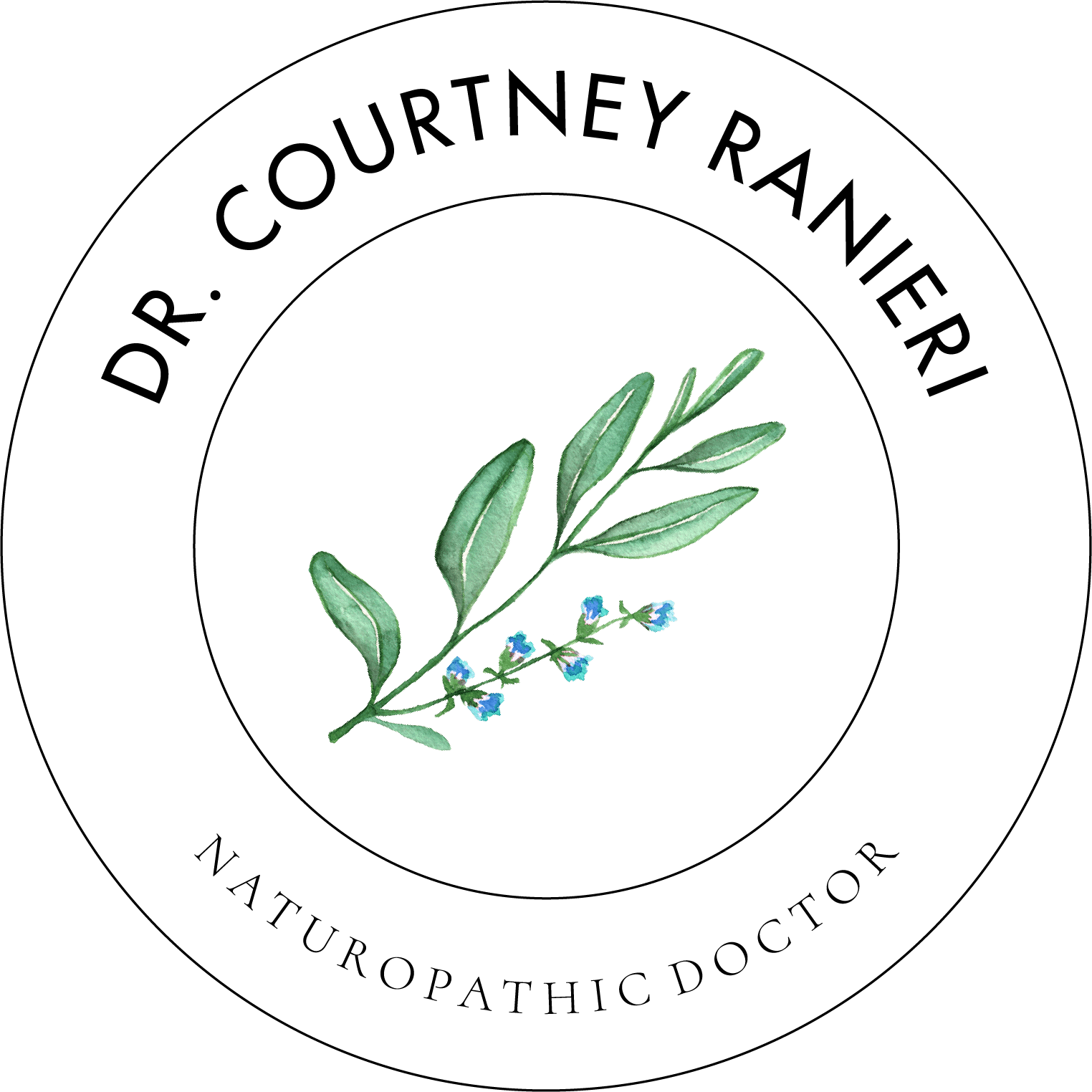Why Is My Hair Falling Out? The Top Reasons For Hair Loss + Your Lab Test Checklist
First things first, hair loss can be totally normal. We are supposed to lose around 100 strands per day (which when we take into account that there are roughly 120,000 hairs are growing on your scalp at any given time, shouldn’t be too noticeable).
However, if hair loss is a concern for you – either you’ve noticed you’ve been losing more strands than normal, hair is thinning on the scalp or you’re hair is getting thicker on other areas of the body, it might be time to take a deeper look! Female hair loss is a common, but important, symptom of many other deeper health concerns and conditions.
As a Naturopathic Doctor, my goal is to help you uncover the root cause of your hair loss so we can
optimize your hair from the inside-out
Healthy Hair Tip #1: Take a look into your hormones – get tested!
Hormonal imbalances are one of the TOP causes of hair loss
- Estrogen
- Optimal levels of estrogen are necessary to grow thick hair. This is because estrogen helps to keep the hair follicle in it’s growing phase.
- Low levels of estrogen may lead to thin hair and stalled hair growth.
- Estrogen can be lower in peri- and post-menopausal women or imbalanced in conditions like PCOS and endometriosis.
- Low estrogen levels can cause female-pattern hair loss – which is diffuse hair loss on the top of the head
- Thyroid Hormones
- Hair loss is a one of the first signs of low-thyroid function (aka hypothyroidism).
- When the body doesn’t produce enough T3 + T4 hormones hair growth stops at the root.
- Testing for thyroid hormones (TSH, free T4 + T3) (along with the presence of other symptoms like low energy, weight gain, feeling cold etc) is important in detecting hypothyroidism.
- Testosterone
- A testosterone balance is a necessary and important hormone in females,
- High levels of testosterone can contribute to female-pattern hair loss and is an indicator of PCOS (which hair loss on the scalp is a common symptom). In PCOS we also can see increased or darkened hair growth on the groin or body.
- Lower levels of testosterone are common when we age.
Interested in Comprehensive Hormone Testing? Check out more info here.
Healthy Hair Tip #2: Focus on Nutrition
Nutritional deficiencies can contribute to hair loss
- Protein
- Protein is a top nutrient for healthy hair! Not including enough protein in the diet can cause hair loss or weak hair as protein contains amino acids which are the building blocks of hair.
- 80-85% of your hair is composed of a protein called keratin.
- Each woman needs a different amount of protein, but getting adequate amounts is imperative for growing thick, healthy hair – check out this post for all the scoop on protein powders + sources.
- Iron
- Iron-deficiency is a common cause of female hair loss.
- May women can be deficient in iron and don’t even know it. Other signs of iron-defiency are fatigue, shortness of breath, paleness, dry hair and skin, headaches and dizziness.
- Including iron-rich foods can be helpful. These are: beef, chicken, turkey, beans and lentils, dark green leafy vegetables such as spinach, whole grains.
- Vitamin B12
- Along with iron-deficient anemia, anemia can be caused by low Vitamin B12 levels and is another cause of hair loss.
- Low Vitamin B12 levels are especially common in vegans and vegetarians, as the only dietary sources of B12 are animal-protein based.
- Other signs of low B12 levels: fatigue, shortness of breath, heart palpitations, weakness, tiredness,I often test Vitamin B12 levels and offer Vitamin B12 injections in my practice.
Healthy Hair Tip #3: Optimize a hair-healthy lifestyle
Other conditions can cause hair loss
- Stress
- Stress pushes hair follicles into a state called Telogen effluvium.
- This causes the hair to prematurely enter the telogen (resting) phase causing hair to fall out even with everyday tasks like combing .
- Stress can also deplete vitamins + minerals necessary for healthy hair growth.
- Learn more about how stress affects our health, mood + weight HERE.
- Digestion
- Conditions that impair digestion can cause hair loss as well.
- They can impact absorption of necessary vitamins and nutrients that support healthy hair. These include:
- Celiac Disease, food allergies, Crohn’s, Colitis and even Food sensitivities.
- Look into Autoimmune Conditions
- Such as lupus, alopecia areata, and Hashimoto’s disease are common autoimmune causes of female hair-loss.
- Testing for autoimmune antibodies (i.e. anti-TPO and ANA) can help rule these conditions in/out.
Natural Treatments
As a Naturopathic Doctor, treatments are tailored specifically for each patient depending on their individual symptoms and goals.
Our plan will focus on:
- Optimal Hair Health Nutrition
- Comprehensive Lab Testing to determine the root cause of hair loss
- Regulating Hormones
- Targeted Botanicals + Supplements
- Address Deficiencies
- Reduce stress, improve sleep

Get your FREE Hair Loss Lab Test Checklist here. Use this to help find the ROOT CAUSE of your hair loss.
If you are interested in optimizing your hair health, hormonal health, or looking fo nutritional support, I am a Naturopathic Doctor in Toronto, Mississauga and Vaughan and would love to help you reach your health goals.
In health,









